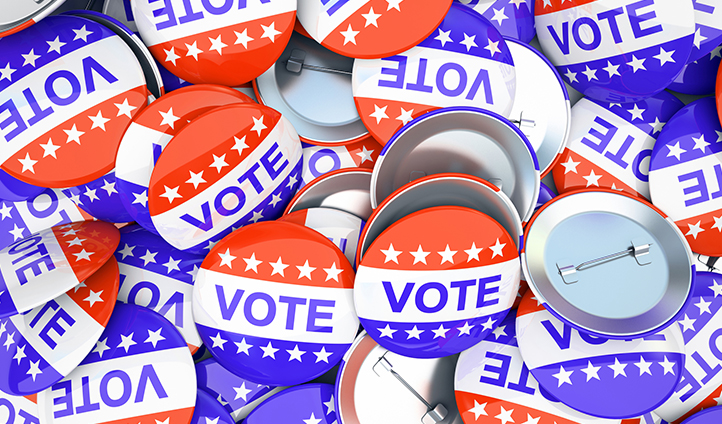Supreme Court Strikes Down Campaign Financing Law as Unconstitutional

In Federal Election Commission v. Ted Cruz for Senate, 596 U.S. ____ (2022), the U.S. Supreme Court held that Section 304 of the Bipartisan Campaign Reform Act of 2002 — which limits the amount of post-election contributions that may be used to repay a candidate who lends money to his own campaign — violates the First Amendment because it “burdens core political speech without proper justification.” Chief Justice John Roberts wrote on behalf of the six member majority.
Facts of the Case
During his 2018 Senate reelection campaign and consistent with federal law, appellee Ted Cruz loaned $260,000 to his campaign committee, Ted Cruz for Senate (Committee). To repay these and other campaign debts, campaigns may continue to receive contributions after election day.
Section 304 of the Bipartisan Campaign Reform Act of 2002 (BCRA) restricts the use of post-election contributions by limiting the amount that a candidate may be repaid from such funds to $250,000. Relevant here, the Federal Election Commission (FEC) has promulgated regulations establishing three rules to implement that limitation: First, a campaign may repay up to $250,000 in candidate loans using contributions made “at any time.” Second, to the extent the loans exceed $250,000, a campaign may use pre-election funds to repay the portion exceeding $250,000 only if the repayment occurs “within 20 days of the election.” Third, when the 20-day post-election deadline expires, the campaign must treat any portion above $250,000 as a contribution to the campaign, precluding later repayment.
The Committee began repaying Cruz’s loans after the 20-day post-election window for repaying amounts over $250,000 had closed. It accordingly repaid Cruz only $250,000, leaving $10,000 of his personal loans unpaid. Cruz and the Committee filed this action in Federal District Court, alleging that Section 304 of BCRA violates the First Amendment and raising challenges to the FEC’s implementing regulation. The District Court granted Cruz and his Committee summary judgment on their constitutional claim, holding that the loan-repayment limitation burdens political speech without sufficient justification, and dismissed as moot their challenges to the regulation.
Supreme Court Decision
The Supreme Court affirmed by a vote of 6-3, holding that Section 304 of BCRA unconstitutionally burdens core political speech without proper justification.
The Court first addressed the issue of standing, concluding that Cruz and the committee had standing because “the Committee’s present inability to repay the final $10,000 of Cruz’s loans constitutes an injury in fact both to Cruz and to his Committee.”
With regard to the merits of the case, the Court also sided with Cruz. It first found that the loan-repayment limitation abridges First Amendment rights by burdening candidates who wish to make expenditures on behalf of their own candidacy through personal loans. “By restricting the sources of funds that campaigns may use to repay candidate loans, Section 304 increases the risk that such loans will not be repaid,” Chief Justice Roberts wrote. “That in turn inhibits candidates from loaning money to their campaigns in the first place, burdening core speech.”
The Court next turned to whether the loan-repayment limitation is justified. “The parties debate whether strict or ‘closely drawn’ scrutiny should apply in answering that question,” Roberts explained. “We need not resolve this dispute because, under either standard, the Government must prove at the outset that it is in fact pursuing a legitimate objective. It has not done so here.”
The Chief Justice went on to note that it has “recognized only one permissible ground for restricting political speech: the prevention of ‘quid pro quo’ corruption or its appearance.” He further emphasized that the FEC failed to “point to ‘record evidence or legislative findings’ demonstrating the need” for the restriction, and was “unable to identify a single case ofquid pro quo corruption in this context” even though “most States do not impose a limit on the use of post-election contributions to repay candidate loans.”
Previous Articles
SCOTUS Rules State Can’t Immunize Parties from Federal Civil Liability
by DONALD SCARINCI on January 29, 2026
In John Doe v. Dynamic Physical Therapy, LLC, 607 U.S. ____ (2025) the U.S. Supreme Court held that...
Supreme Court to Address Racial Discrimination in Jury Selection
by DONALD SCARINCI onWhile the U.S. Supreme Court has concluded oral arguments for the year, it continues to add cases t...
Supreme Court Halts Deployment of National Guard to Chicago
by DONALD SCARINCI on
In Trump v. Illinois, 607 U.S. ____ (2025), the U.S. Supreme Court refused to stay a district court...
The Amendments
-
Amendment1
- Establishment ClauseFree Exercise Clause
- Freedom of Speech
- Freedoms of Press
- Freedom of Assembly, and Petitition
-
Amendment2
- The Right to Bear Arms
-
Amendment4
- Unreasonable Searches and Seizures
-
Amendment5
- Due Process
- Eminent Domain
- Rights of Criminal Defendants
Preamble to the Bill of Rights
Congress of the United States begun and held at the City of New-York, on Wednesday the fourth of March, one thousand seven hundred and eighty nine.
THE Conventions of a number of the States, having at the time of their adopting the Constitution, expressed a desire, in order to prevent misconstruction or abuse of its powers, that further declaratory and restrictive clauses should be added: And as extending the ground of public confidence in the Government, will best ensure the beneficent ends of its institution.





